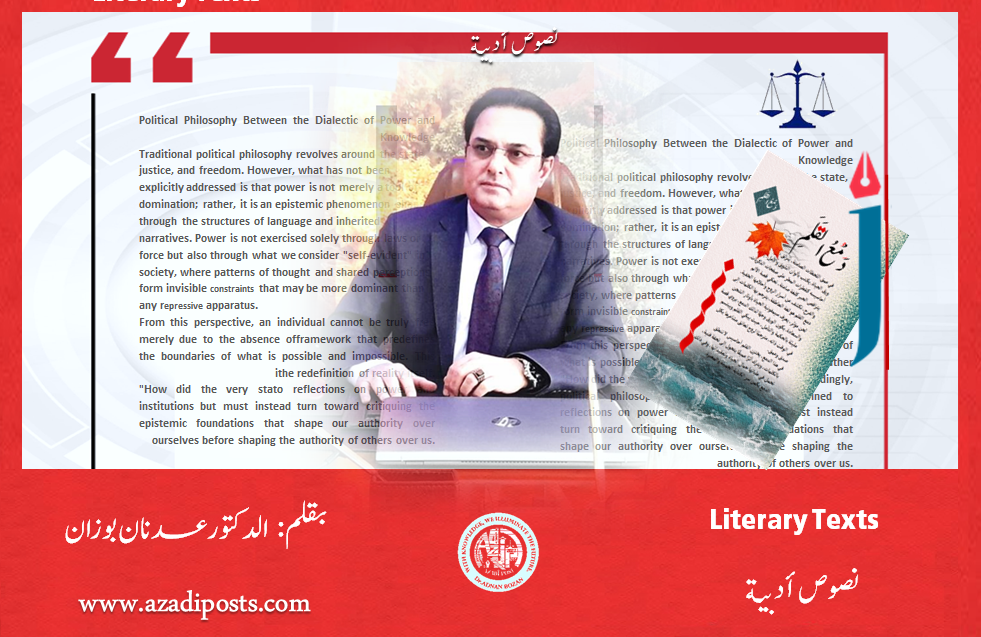
By Dr. Adnan Bouzan
Pain alone—when it ignites deep within—resembles nothing that can be said.
It needs no voice to reveal itself;
it is enough for it to dwell in a gaze,
to slip into our breaths like a shadow that never leaves,
and to rearrange our souls according to the measure of agony.
It is a language woven from the ashes of patience,
translated through a silence deeper than speech.
And when we write about it,
we do not express it—we merely try to survive the burning
without extinguishing the flame.
Longing alone, that stubborn visitor who never knocks,
enters as the breeze slips through the cracks of the heart.
It scatters what had settled into forgetfulness,
and brings back faces that vanished,
voices that hid within the hollows of memory.
It does not come to console,
but to remind us that something within us has not yet died—
that the heart, despite all absence,
still remembers the road to its past.
In distant exiles, when cities narrowed beneath my pain,
I found in paper a homeland that betrays no one.
I began to write as a drowning man breathes—
tracing ashes into the shape of new life,
building from letters a bridge
to cross from the chaos of nothingness
to the shores of salvation.
Writing is no luxury for those scorched by fire—
it is a ritual of deliverance,
a rescue from drowning in the void,
a small triumph over postponed death.
For every letter born from the womb of the wound
carries the scent of loss,
yet lights the path like an ember that never fades.
I write of houses that once laughed—then fell silent,
of windows still opening onto absence,
of mothers whose voices vanished into the wind
but still wait on thresholds covered with dust and forgetfulness.
I write of childhood stolen from between the ribs of time,
of laughter slain beneath the shadow of cannons,
of a homeland whose colors were plundered
but whose scent remains in the heart—
like a forgotten flower pressed in an old book.
I have no weapon but the word,
no land but memory.
I write so that the trace may not be erased,
so the story may remain alive in the face of nothingness,
so I might tell those who come after me
that pain can blossom into roses
when shaped by ink.
Every text I write is a step toward the self that lost its way,
every word an attempt to find a home
that exists no longer on maps—only within the soul.
Perhaps ink is all that remains of my roots,
and perhaps words are the sky
I still raise my eyes to when exile weighs me down.
For pain teaches us patience,
and longing teaches us memory—
and between them our humanity takes form:
a blend of tears and beauty,
of ashes and light together.
I write because writing is my way of remaining,
my voice against annihilation.
Because forgetfulness is not healing—
it is a postponed death,
without a coffin, without farewell.


